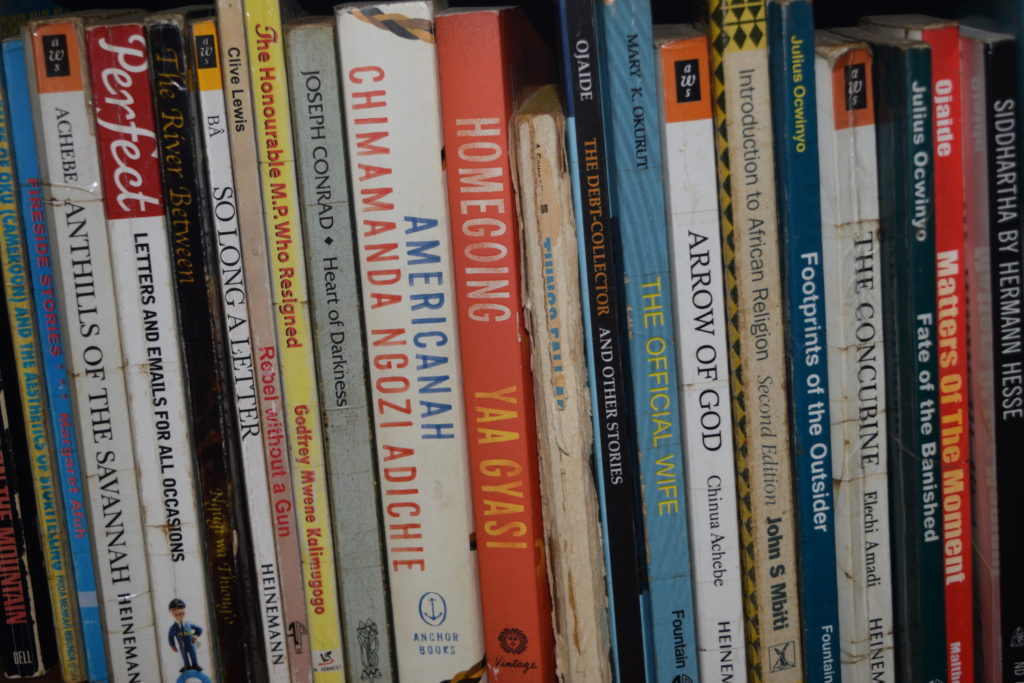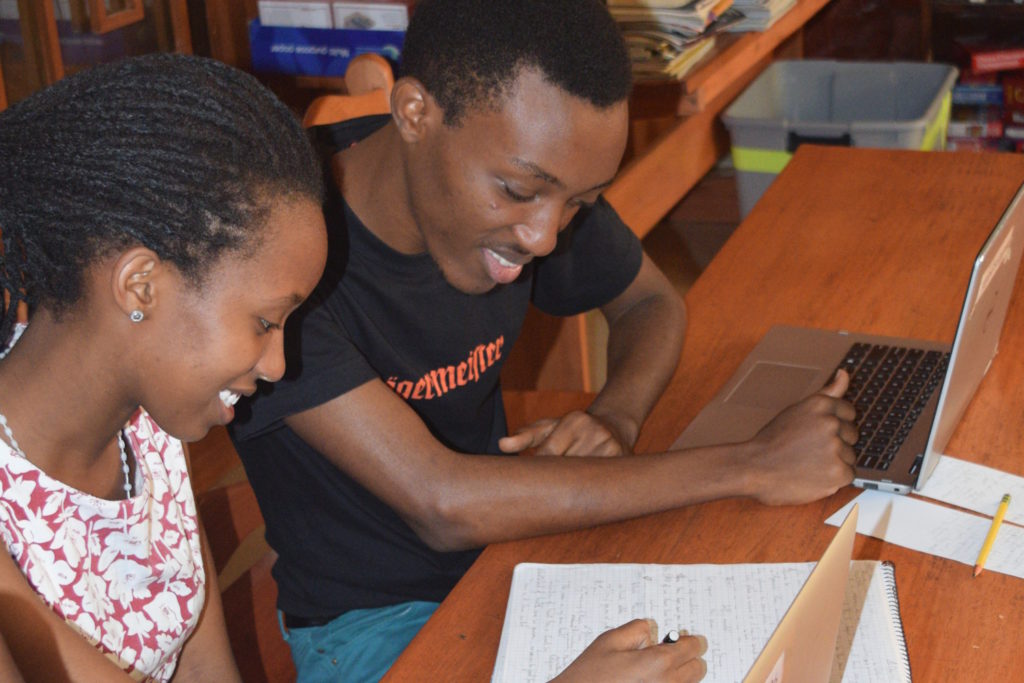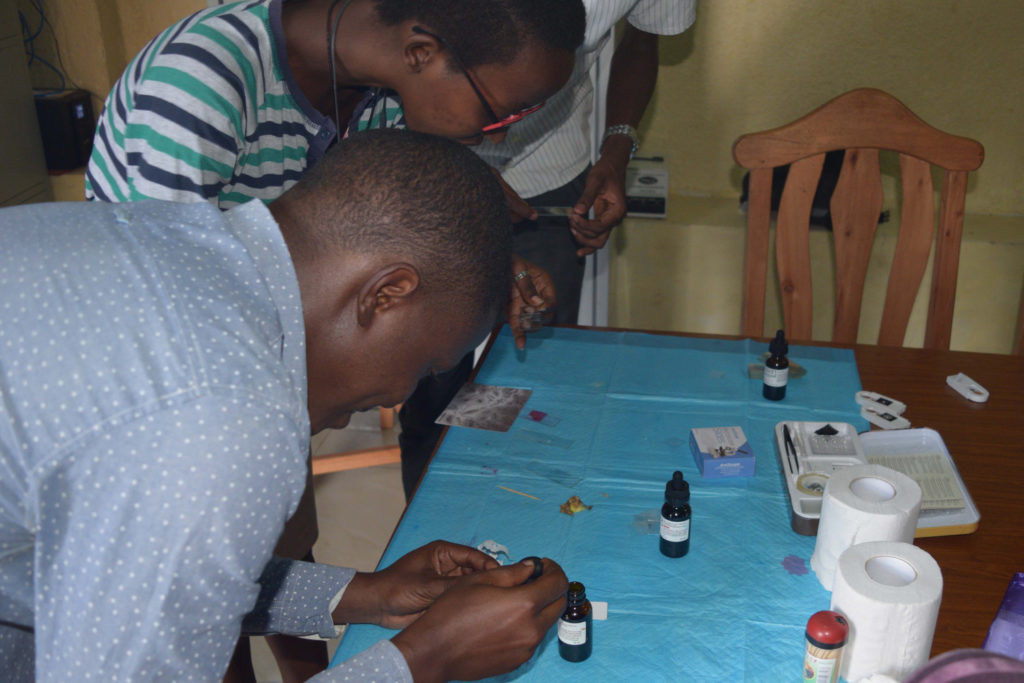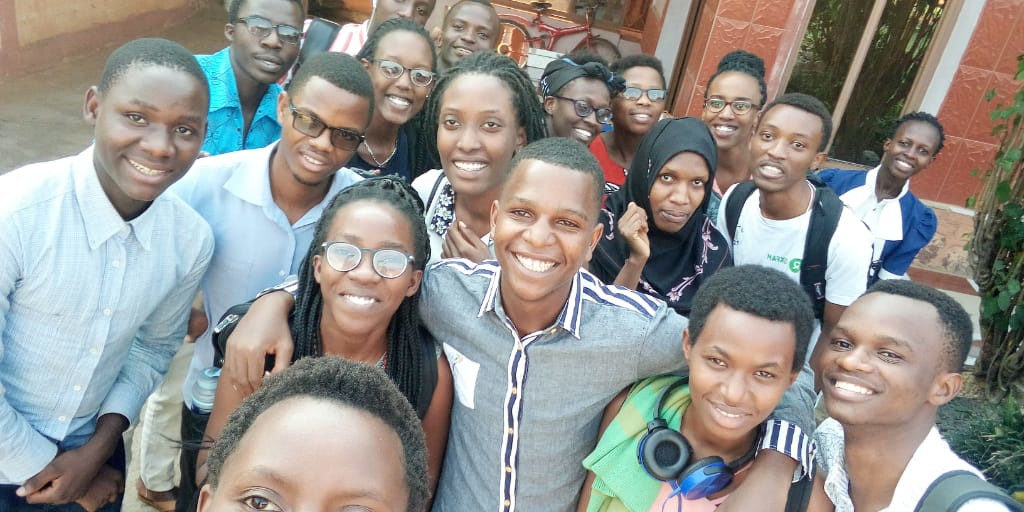The academics at Tujenge are exceptionally rigorous, high-quality, and regionally and culturally specific to Burundian scholars. Taught by staff with advanced degrees ranging from African literature to international relations, neuroscience to African studies, the coursework is meant to be highly challenging, demanding of deep thought and reflection, and preparatory for university-bound scholars.
The mechanics of how Tujenge Scholars Program pursues its academic objectives are contained in the curricular components listed below. Each Component is a general or specific approach to curriculum design that meets one or more of the program’s academic pillars. Each of the five components is integral to the overall design of the curriculum, and no single component has more weight than another.
Every course and academic program falls within one of these five components, ultimately supporting the overarching academic pillars.
The English language component comprises two separate elements. First, all Tujenge classes are taught in English, across all components and disciplines. For scholars to meet the English proficiency goals of the program, they must be in a fully immersive academic environment.
The second element is the English curriculum itself. In addition to addressing language proficiency objectives, this curriculum also promotes university-level academic and critical thinking skills. Over the course of the program, the particular focus of the English curriculum changes to address these different skills and goals. Throughout, engagement with primary texts and in-class discussions are central to the English component.
Though not the primary focus, the English curriculum must prepare students to take standardized tests, usually the TOEFL and SAT. Once the language fundamentals have been absorbed, directed test-taking courses help students navigate the intricacies of testing.
A research paper, completed during the Prepare Term, is the capstone of the English curriculum.
The educational breadth component is made up of two distinct elements. Both of these elements directly relate to the objective of exposing students to new ways of thinking and developing the tools to think critically about the world.
The first element, a dedicated core STEM curriculum, is designed to give scholars the technical skills and savvy to appreciate the frenetic pace of technological development in the world today, and start to envision how technologies might fit into the broader societal context. In order to prepare for university and career, a basic background in STEM subjects is crucial. Computer literacy is central to the core STEM curriculum, as are math and science literacy. These are combined with the elective-based STEM curriculum to form a cohesive approach to 21st century STEM learning.
Just as with the English Component above, standardized test preparation is a secondary, but significant, aspect of the STEM curriculum. In particular, math courses must provide students with the background and test-specific tools needed to excel at the math portion of a SAT exam, or a STEM-focused SAT Subject Test.
Elective classes form the second element of the educational breadth component. These classes are further divided into three distinct areas: arts and humanities, social sciences, and STEM. Emphasis for these classes is on exposure to different fields and different approaches to learning. By introducing myriad topics of study, students have the opportunity to explore old interests and discover new ones, all while developing cross-disciplinary critical thinking skills.
Elective courses can be taught within the established English and STEM core curricula, or as separate one-off courses. In particular, the program’s Exploration Term is an opportunity to engage outside instructors in self-contained courses of particular interest.
In contrast to the first two components, the seminar component comprises just one specific and focused curriculum. The Tujenge Seminar runs throughout the program and directly addresses topics in peacebuilding and leadership. This component is key to the program in its unique position to engage students on these topics. Tujenge is primarily a peacebuilding initiative, and the seminar is the principal opportunity for students to engage in dialogue on the charged topics that underlie Burundi’s history of conflict.
Ethnicity, power, literature, history, economics, ethics, governance, social structures, analysis of leadership, reading skills, writing skills, speaking skills: these are just a sampling of the topics that are covered over a span of eighteen months.
There is significant overlap between the seminar and the English and breadth curricula, especially as they both relate to critical thinking and English fundamentals. However, particular emphasis is placed in the seminar course on the Burundian context, emphasizing these students’ place as changemakers in their society.
All Tujenge Scholars design and execute a leadership service project as part of their participation in the program. The project, undertaken in the Prepare Term, is overseen by a project advisor and represents the opportunity for the student to make a tangible difference in her community.
This project will range in focus and complexity for each student, but will be closely tied in to the program’s leadership objectives.
This component comprises university counseling as well as a curriculum to ensure a smooth transition to university studies.
The first element of this component is consistent counseling throughout the eighteen month program. Topics covered range from understanding international university systems to students’ ongoing mental health.
Coaching on university applications forms the second element of this component. Working with students to find college “matches” and helping them through the application process is crucial. Supporting scholars as they navigate the financial aid apparatus features heavily in this element.
A transition course is offered during the Prepare Term and forms the program’s effort to make sure that students are socially ready for university studies. For students traveling outside of Burundi, this element is particularly important. Topics are wide-ranging and should include among others: foreign systems of administration (including tax and immigration obligations), sex culture, alcohol and drug use, medical care, making friends, making use of office hours, university resources, and writing email.
These three elements help to ensure student readiness for university and navigating the process of enrollment. In essence, this component contains the program’s roadmap for its college-bound students from the time they start the program until they start their university coursework.
Measurement of success is based on university placement numbers, both in aggregate and looking at specific student–school successes, and in student retention rates at their universities. If this component is successful, students will have the extra-academic tools they need to navigate three to five years of undergraduate university study.




